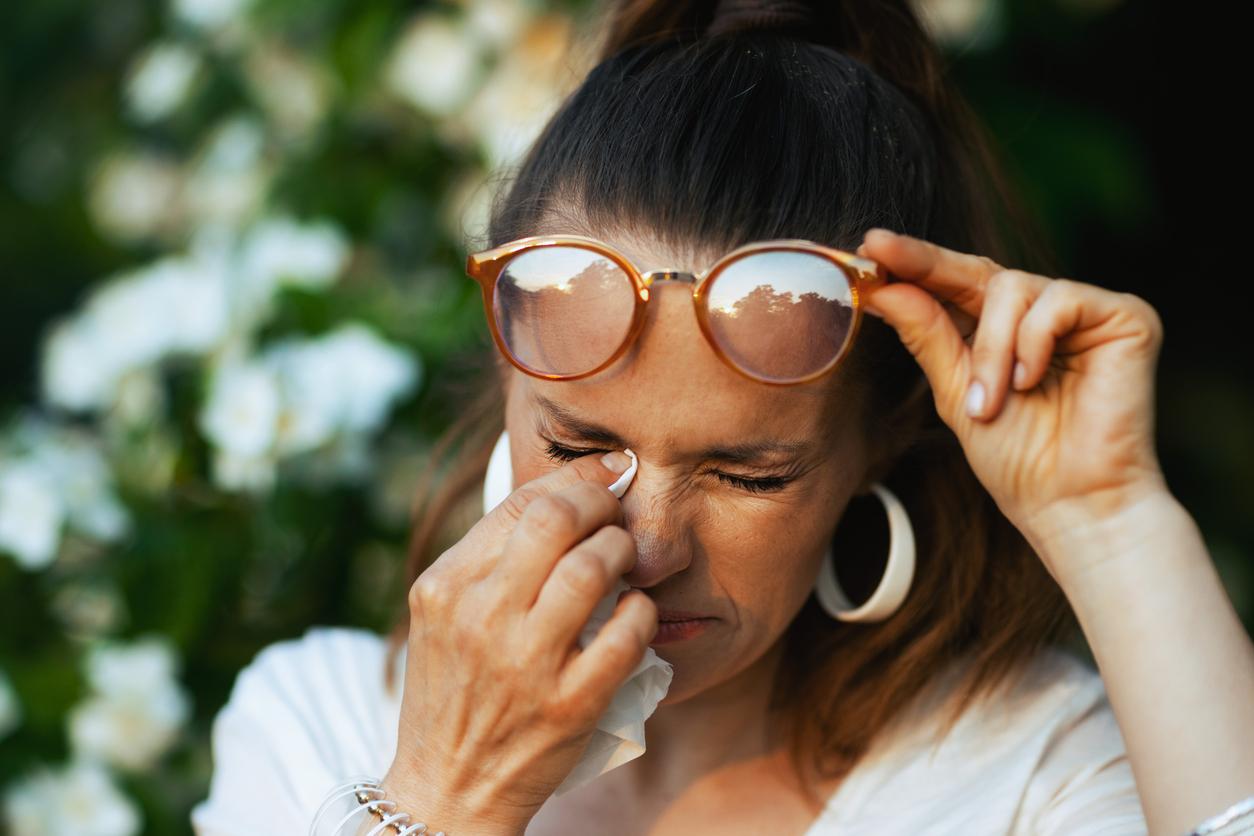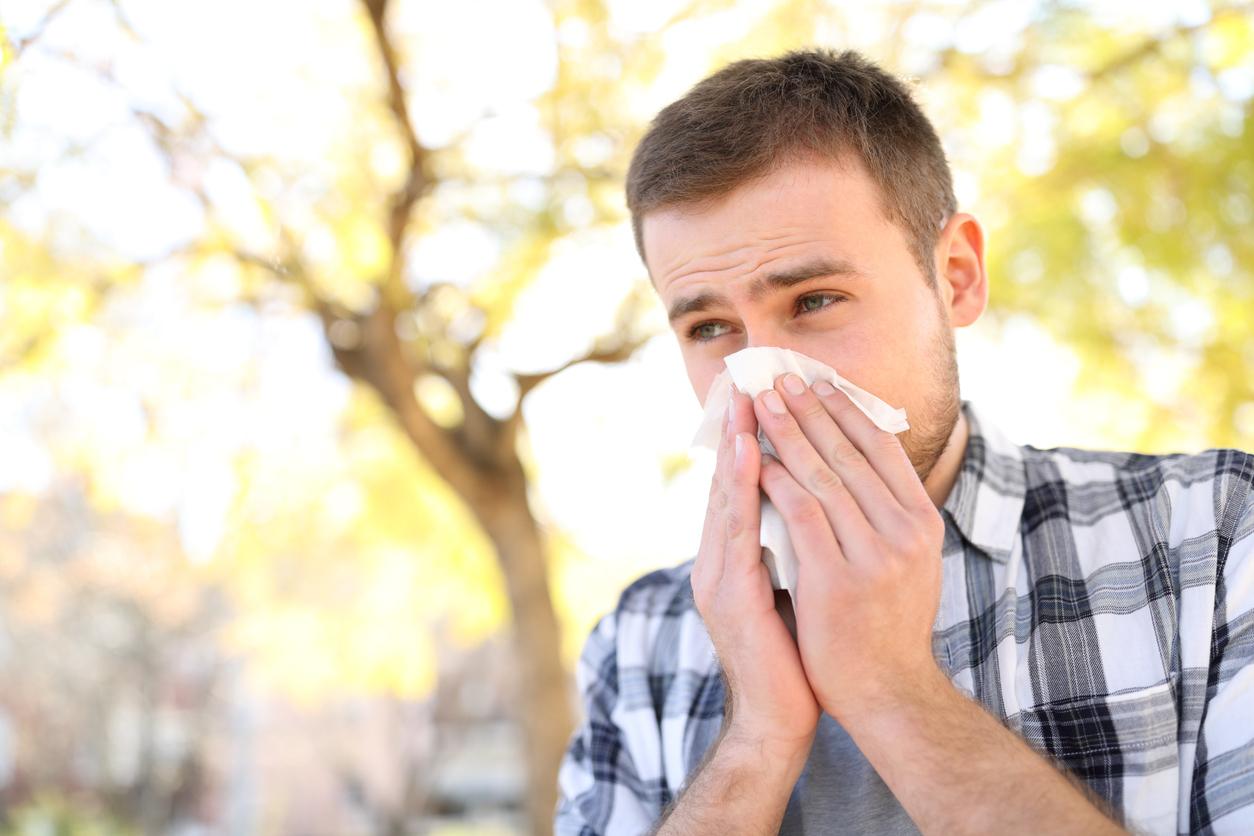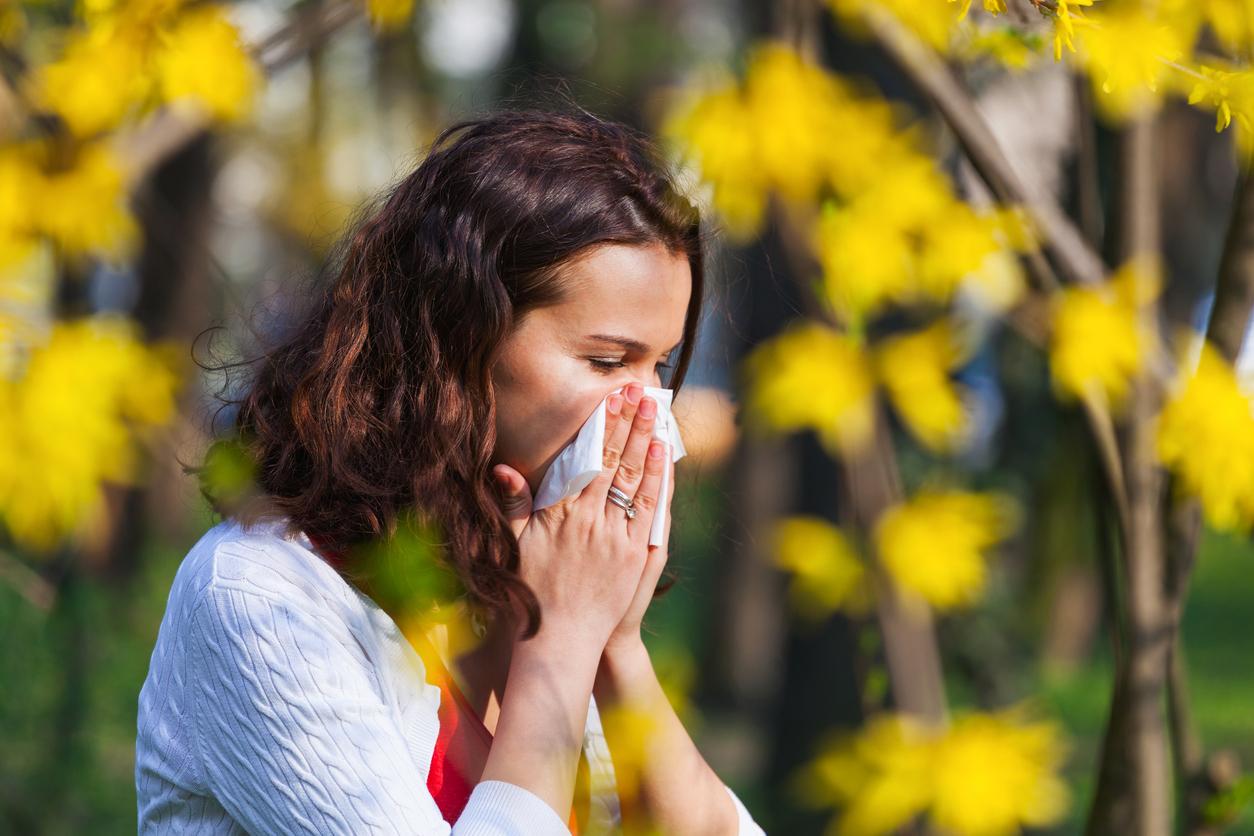The arrival of spring marks the return of pollen, announced this Tuesday in the Paris region by Météo France and the National Aerobiological Monitoring Network. Another allergic factor, stress can promote the development of allergies in the nasal cavity. On the good news side, a protein has been shown to be effective in mitigating a whole host of reactions caused by allergies.

- To best avoid allergies: ventilate your home well, wear sunglasses, avoid undrying your laundry outside, outdoor sports and close the windows while driving.
- Pollen could promote the transmission of SARS-CoV-2 by weakening the immune response.
- Neuritin, a protein produced by the body would relieve allergic symptoms and prevent severe allergies.
The arrival of spring sounds for many like the beginning of the problems with the flowering of the birch whose pollen is responsible for many allergies. the National Aerobiological Monitoring Network and Météo France announced the arrival of birch pollen from this Tuesday in the Paris region and from Wednesday in the Lyon region. Flowering is scheduled to start on 1er April in the regions of central France and from April 5 in the north and east of the country.
Pollen, potential accelerator of Covid transmission
The start of flowering does not represent the allergic peak but warns allergy sufferers to anticipate treatments in order to minimize the risks. These include antihistamines, which are effective in relieving allergic crisis symptoms such as itching, runny nose, sneezing or watery eyes. Otherwise, certain good gestures allow you to protect yourself from pollen and limit its consequences. You must ventilate your home well, rinse your hair well when you come home in the evening, wear glasses to protect yourself from the sun, avoid drying your laundry outside to prevent pollen from sticking to it or even prefer to stay at home when there’s a lot of wind. It is also best to avoid outdoor sports activities that promote overexposure to pollens. By car, it is better to drive with the windows closed.
Does the mask protect against pollen? No scientific study supports this theory but it could help curb the inhalation of pollen. “The filtration of the masks is a few microns, so we can imagine that there is less pollen breathed through a mask”, judged Madiha Ellaffi, pulmonologist and allergist, at LCI. In addition, German researchers recently discovered that the high pollen concentrations corresponded to the epidemic peaks in the spring of 2020. According to them, this is explained by a weaker immune response in the respiratory tract caused by the high pollen concentrations in the air.
Stress, an aggravating factor of allergies
Stress appears to be an aggravating factor for people with allergies. On March 9, in a study published in the International Journal of Molecular Sciences, Mika Yamanaka-Takaichi, a Japanese researcher from the University of Osaka has clarified the link between the stress hormone which releases corticotropin and the degranulation of allergic mast cells, involved in allergies in the nasal cavity. “In my daily practice, I encounter many allergy patients who say their symptoms have worsened due to psychological stress.”, observed the researcher.
Before him, other researchers have established a link between allergies and anxiety and depression. In 2019, a study published in the journal International Archives of Allergy and Immunology suggests that allergies could trigger anxiety or depression issues. People with allergies for a year were more likely to have depression. The results also showed that people living with generalized anxiety tend to have more seasonal allergies.
Neuritin, a protein that fights allergies
However, there is no treatment to protect against allergies which affect between 25 and 30% of the French population. A little-known protein, neuritin, presents itself as an effective therapeutic option. Australian researchers have recently discovered that this molecule has the potential to reduce the symptoms caused by allergies but also autoimmune diseases. “We found this absolutely fascinating mechanism in our own body that shuts down the production of antibodies that can cause autoimmunity or allergiesrejoiced Carola Vinuesa, author of the study presented on March 11 in the journal Cell. We have shown this to be one of our immune system’s own mechanisms to prevent autoimmunity and allergies and now that we have the evidence we can continue to harness this for treatment..”
Neuritin has the ability to eliminate the overproduction of antibodies that will turn against the host and promote allergies or cause autoimmune diseases. “Of course, allergies and autoimmune diseases can also be eliminated by suppressing the entire immune system, but with disastrous consequences.continues Paula Gonzalez-Figueroa, co-author of the study. Neuritin, however, appears to have far more targeted effects than many existing treatments and as a protein already present in the body it will leave the immune system free to fight off the invaders it is meant to fight..”
In their study, the researchers showed in mice that by depriving them of neuritin production, their allergies are more severe. “We also tested it on human cellssays Gonzalez-Figueroa. We examined tonsil lymphocytes from several patients and challenged them to produce antibodies. If we added neuritin, it blocked the process of cell differentiation to produce ‘bad’ antibodies. It could be more than a new drug – it could be a completely new approach to treating allergies and autoimmune diseases.”
.

















